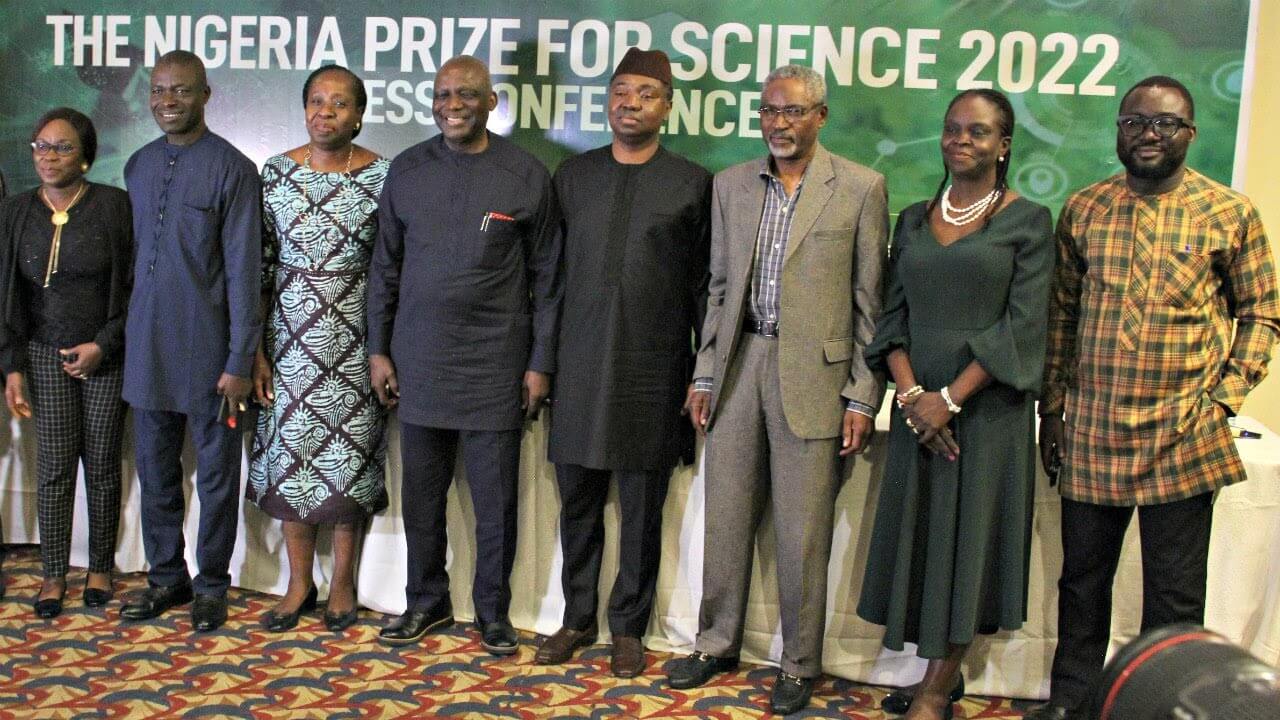The Advisory Board of The Nigeria Prize for Science announced Professor Hippolite Amadi as the winner of the 2023 edition for his groundbreaking work on respiratory technologies designed to save the lives of Nigerian newborns. The prestigious prize, valued at $100,000, is generously sponsored by Nigeria LNG Limited (NLNG).
Professor Barth Nnaji, who heads the Prize’s Advisory Board, unveiled the judges’ decision, based on the 2023 theme “Innovation for Enhancement of Healthcare Therapy,” during a press conference held in Lagos.
Reacting to this significant recognition, Mr. Andy Odeh, NLNG’s General Manager for External Relations and Sustainable Development, highlighted the importance of collaboration between the private sector, academia, and the broader scientific community. He stressed the importance of nurturing and supporting innovative solutions that can transform the nation, aligning with NLNG’s vision of “helping to build a better Nigeria” where pioneering ideas thrive, and every life is valued and safeguarded.
Odeh stated, “We are honored and deeply moved by the judges’ decision to recognize the groundbreaking innovation in respiratory technology that has been awarded the Nigeria Prize for Science in 2023. This invention not only represents a remarkable leap forward in medical science but also serves as a beacon of hope for the most vulnerable among us – our neonates.”
He further emphasized the profound impact of innovation on healthcare therapy enhancement and the protection of countless newborns’ futures. Odeh expressed NLNG’s pride in contributing to a legacy that prioritizes saving lives in scientific pursuits.
Professor Nnaji, in his report as the head of the judges, underscored the substantial advancements in neonatal care achieved by Professor Amadi’s work. He highlighted that the innovations have not only made oxygen delivery more affordable but have also lowered the cost of neonatal care.
The winning entry comprised three technological innovations designed to save neonatal lives. The first innovation, the non-invasive Neonatal Ventilator known as “The Bubble PoliteCPAP,” offers cost-effective continuous positive airway pressure (CPAP) ventilation for very low-birth-weight neonates. The second innovation is the Oxygen Delivery Blender System, ensuring safe oxygen delivery without toxicity risks. The third innovation, the Oxygen Splitter System, allows multiple neonates to share a single oxygen source when piped oxygen is unavailable. Notably, all these devices are solar-powered.
Professor Nnaji emphasized that the innovative PoliteCPAP device, which has been tested in various Nigerian hospitals, provides simultaneous access to ventilators and oxygen delivery at a significantly reduced cost of N750,000 compared to the existing device priced at N6.5 million, while maintaining comparable efficiency.
Professor Hippolite Amadi, the recipient of the prize, is a visiting professor of Medical Engineering and Technology at Imperial College London. He has a profound interest in developing affordable medical systems and boasts a career spanning over three decades, encompassing engineering in healthcare, orthopaedics, and neonatology research. He is also the author of the book “Born to Live, Not to Die.”
The panel of judges, led by Professor Joseph Ahaneku, a Professor of Chemical Pathology at Nnamdi Azikiwe University, Awka, Anambra State, played a pivotal role in selecting the winning entry. Other esteemed panel members included Professor Olaitan Alice Soyannwo, a Professor of Anaesthesia at the University of Ibadan, and Professor Abdullahi A. Abba, a Professor of Medicine and Pulmonology at Ahmadu Bello University.
The Prize’s Advisory Board, consisting of Chief Dr. Nike Akande, a former minister and former President of the Lagos Chamber of Commerce and Industry, and Professor Yusuf Abubakar, a professor of Animal Breeding and Quantitative Genetics, also contributed to this significant recognition.




